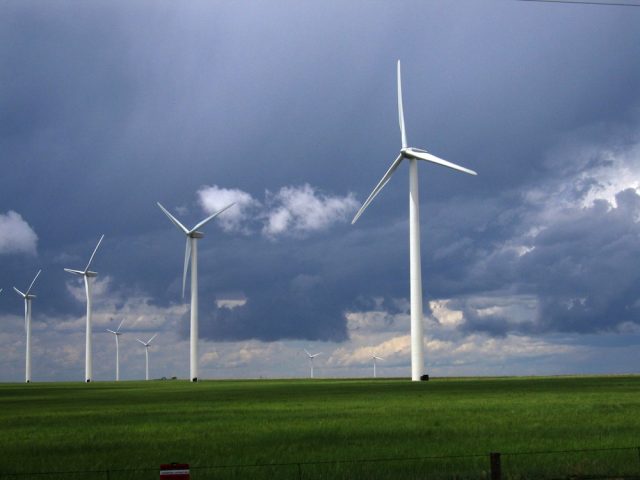

The Moon landing was faked, and wind farms are bad
source link: https://arstechnica.com/science/2022/12/the-moon-landing-was-faked-and-wind-farms-are-bad/
Go to the source link to view the article. You can view the picture content, updated content and better typesetting reading experience. If the link is broken, please click the button below to view the snapshot at that time.
The turbines are out to get you! —
The Moon landing was faked, and wind farms are bad
In Germany, opposition to wind farms correlated with conspiratorial thinking.
Diana Gitig - 12/12/2022, 6:40 PM

Germany ranks third in the world for installed wind power capacity. In 2020, almost a quarter of the country’s energy came from wind, and the government has pledged to double that by 2030, designating 2 percent of Germany’s landmass to become wind farms.
Switching away from fossil fuels to cleaner energy sources like wind is essential if we want to try to mitigate some of the worst consequences of the climate change we’ve started, but this switch is extraordinarily difficult for many reasons. Watching how this switch plays out in early adopters of wind power like Germany may help inform how the rest of us decarbonize.
People are generally keen on wind power in the abstract, but a huge NIMBY (not in my backyard) factor comes into play when wind farms have to actually get built in communities. Researchers in Germany wondered what it was, exactly, that made people vote against local wind farms. They found that a tendency toward conspiratorial thinking helped explain a lot of the resistance.
Big wind is behind it all!
The new study started by checking if opposition to wind power was at all linked with a “conspiracy mentality,” which they defined as “the notion that it is commonplace for groups of elites with bad intentions”—the Elders of Zion or whoever—"to conduct elaborate hoaxes on the public and to do so in near-perfect secrecy.”
They suspected that a conspiracy mentality might correlate with opposition to wind farms for a couple of reasons. First of all, they note that wind turbines have long been low-key targets of conspiracy theories, which have circulated misinformation that wind farms cause cancer and congenital abnormalities (pretty basic conspiracy theory fare, really). And secondly, wind farms are often pushed by local governments and generally accepted by most of society, whereas those with a conspiracy mindset tend to distrust authority and like thinking of themselves as holding views counter to the mainstream.
AdvertisementTurns out the researchers were spot-on. In a study of 2,055 German adults, they found a strong correlation between harboring a conspiracy mentality and being unlikely to vote for wind turbines near your community. This correlation held regardless of if the referendum on building the turbines was proposed by supporters of the wind farm or its opponents. And in another study of 2,155 other German adults, a conspiracy mentality was far and away the biggest predictor of voting against a wind farm, much more so than age, gender, education level, or being politically right-wing.
The good news
The good news is that giving information about the wind farms—that they can reduce carbon emissions, grant a more secure energy supply, and even provide a financial boon to the municipality—to people increased their likelihood of voting for them. This information was effective whether the information came from industry or the government and was most effective in those with the strongest conspiracy leanings.
That’s somewhat surprising, as this sort of thinking tends to be linked to believing that climate change itself is a hoax. So it wouldn’t necessarily follow that telling someone prone to conspiracies that addressing climate change would be viewed as a positive.
The effects were dampened somewhat if people were exposed to counterarguments instead of just pro-arguments, which they will be in real life. But even seeing both sides changed some people’s minds.
So human nature is still probably the biggest barrier to curbing, combating and reducing climate change, it just blocks progress in a multifaceted way. It is not only that we are collectively too lazy and unimaginative to change our damaging, consumptive behavior because it is financially beneficial or just because it is simply too comfortable and convenient. It’s also that in trying to make any productive changes, we will have to contend with those who still refuse to believe the facts on the ground.
Nature Energy, 2022. DOI: 10.1038/s41560-022-01164-w
Recommend
About Joyk
Aggregate valuable and interesting links.
Joyk means Joy of geeK